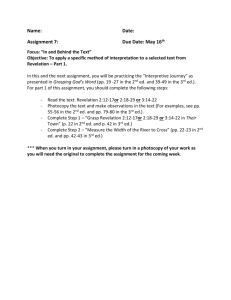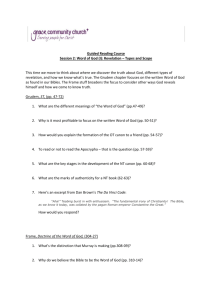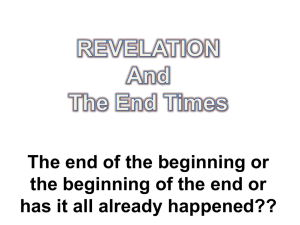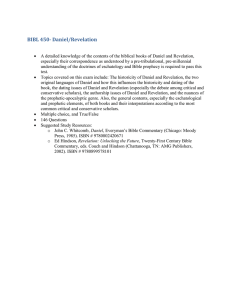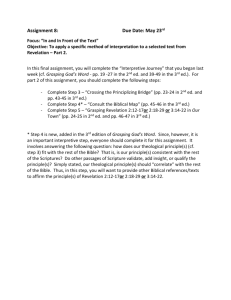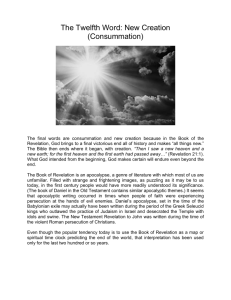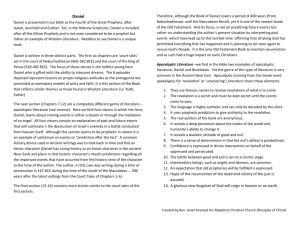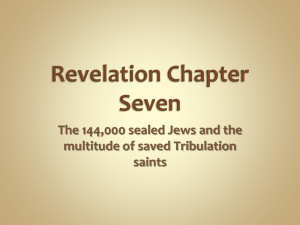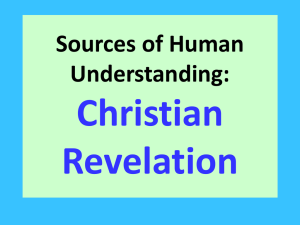to Sermon Handout - Somerset Congregational Church
advertisement
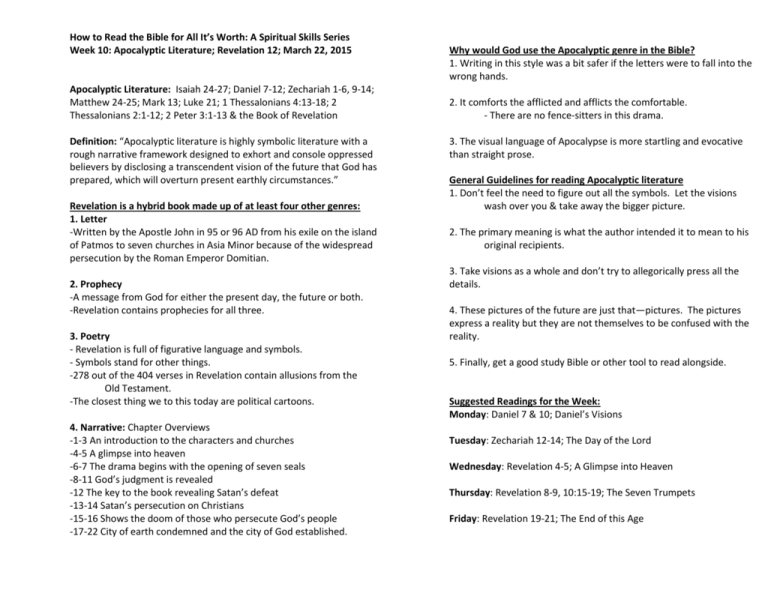
How to Read the Bible for All It’s Worth: A Spiritual Skills Series Week 10: Apocalyptic Literature; Revelation 12; March 22, 2015 Apocalyptic Literature: Isaiah 24-27; Daniel 7-12; Zechariah 1-6, 9-14; Matthew 24-25; Mark 13; Luke 21; 1 Thessalonians 4:13-18; 2 Thessalonians 2:1-12; 2 Peter 3:1-13 & the Book of Revelation Definition: “Apocalyptic literature is highly symbolic literature with a rough narrative framework designed to exhort and console oppressed believers by disclosing a transcendent vision of the future that God has prepared, which will overturn present earthly circumstances.” Revelation is a hybrid book made up of at least four other genres: 1. Letter -Written by the Apostle John in 95 or 96 AD from his exile on the island of Patmos to seven churches in Asia Minor because of the widespread persecution by the Roman Emperor Domitian. 2. Prophecy -A message from God for either the present day, the future or both. -Revelation contains prophecies for all three. 3. Poetry - Revelation is full of figurative language and symbols. - Symbols stand for other things. -278 out of the 404 verses in Revelation contain allusions from the Old Testament. -The closest thing we to this today are political cartoons. 4. Narrative: Chapter Overviews -1-3 An introduction to the characters and churches -4-5 A glimpse into heaven -6-7 The drama begins with the opening of seven seals -8-11 God’s judgment is revealed -12 The key to the book revealing Satan’s defeat -13-14 Satan’s persecution on Christians -15-16 Shows the doom of those who persecute God’s people -17-22 City of earth condemned and the city of God established. Why would God use the Apocalyptic genre in the Bible? 1. Writing in this style was a bit safer if the letters were to fall into the wrong hands. 2. It comforts the afflicted and afflicts the comfortable. - There are no fence-sitters in this drama. 3. The visual language of Apocalypse is more startling and evocative than straight prose. General Guidelines for reading Apocalyptic literature 1. Don’t feel the need to figure out all the symbols. Let the visions wash over you & take away the bigger picture. 2. The primary meaning is what the author intended it to mean to his original recipients. 3. Take visions as a whole and don’t try to allegorically press all the details. 4. These pictures of the future are just that—pictures. The pictures express a reality but they are not themselves to be confused with the reality. 5. Finally, get a good study Bible or other tool to read alongside. Suggested Readings for the Week: Monday: Daniel 7 & 10; Daniel’s Visions Tuesday: Zechariah 12-14; The Day of the Lord Wednesday: Revelation 4-5; A Glimpse into Heaven Thursday: Revelation 8-9, 10:15-19; The Seven Trumpets Friday: Revelation 19-21; The End of this Age
